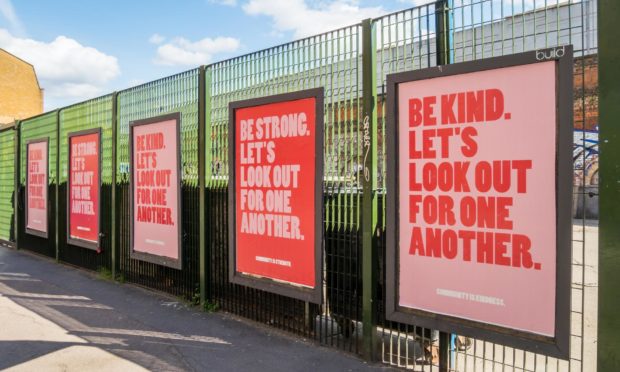Did you have pancakes on Tuesday? It was difficult to let Pancake Day (Shrove Tuesday) pass by this year without notice. Newspapers and magazines were full of recipes, offering a wide variety of possibilities. For those enjoying lockdown baking, pancakes were an easy addition to the week.
If Tuesday was for pancakes, then it meant that for churches Wednesday was for ash and the beginning of Lent.
Last year we entered Lent unaware of what was about to come upon the world. Halfway to Easter we entered lockdown. This year there is the distinct possibility that the whole of Lent will be a lockdown experience.
While it is a Christian tradition to give something up for Lent, many outside of our tradition also mark this time of year by consuming less. There are many good reasons for doing so.
Traditionally Lent was a time for fasting, when food became simpler and the habits of eating more disciplined. Richer foods were avoided, including those associated with feasting – so chocolate, desserts, alcohol, coffee and caffeine. Less meat would be eaten, more fish and vegetarian dishes.
For those who have over indulged through the Christmas and New Year period, Lent becomes as a welcome break and relief, offering the possibility of a reset to better habits.
In fact, Lent is all about resetting life. It offers an opportunity to take a good look at every part of life, think about what really matters, and make adjustments accordingly.
Most of us know what we need in life to help us to do well in body, mind and spirit. Lent offers a chance to reboot according to “factory settings”, and do those things which will lead to better relationships and physical and mental health.
Commonly, in our Western societies, this means reducing what we eat and drink, downsizing what we spend, and taking more time to pay attention to people.
In churches, a Lent fast is not just about personal downsizing. We are encouraged to look at our behaviours and values. In our prayers and readings we are encouraged to fast from injustice. We are encouraged to fast from, that is give up, those things which lead to the oppression of other people. This kind of fasting is much more difficult.
It is one thing to give up eating cake, I can feel the benefits straight away, but quite another to work out what I must change in order to benefit others in my street or town who might not be doing too well.
Fasting from injustice requires a change of mindset. It requires us to realise how connected to each other we are. This is something that we have been learning in new ways during the pandemic. We now appreciate that what seems like a small activity for me, an expression of my personal freedom, like entering someone else’s home or not keeping proper social distance, can have a great effect on another person.
We are learning afresh what it means to live in community, that for one person to stay well, everyone has to stay well. If something good is to come out of all of this then maybe this is what we should learn: There is not justice for one unless there is justice for all.
This means that Lent can never just be about individual choices, but needs to include collective actions. It is common in the Scottish Episcopal Church for someone in my role, a bishop, to encourage some sort of collective action. This year my Lent Appeal is concerned with food. In thinking about this I was struck by the terrible coincidence, that just at the time when I am deciding to eat and drink less, and to consume food more carefully and simply, others who live near to me do not have much to eat at all. I have been noticing the growing incidence of food insecurity, and families experiencing food crisis.
I have long been a supporter of foodbanks, although I wish life in our country was different so that they were not needed at all. Right now they are playing a vital role, not just in feeding people but in their role of advocacy making the needs of many known to those in government. My appeal is that we give to and support foodbanks through Lent.
In Lent those in the churches are encouraged to pray more, fast more, and give more away. All of these things connect us to our neighbours. I will know Lent is going well for me if others are benefitting.
The Rt Rev Anne Dyer is Episcopalian Bishop of Aberdeen and Orkney and Scotland’s first female bishop

